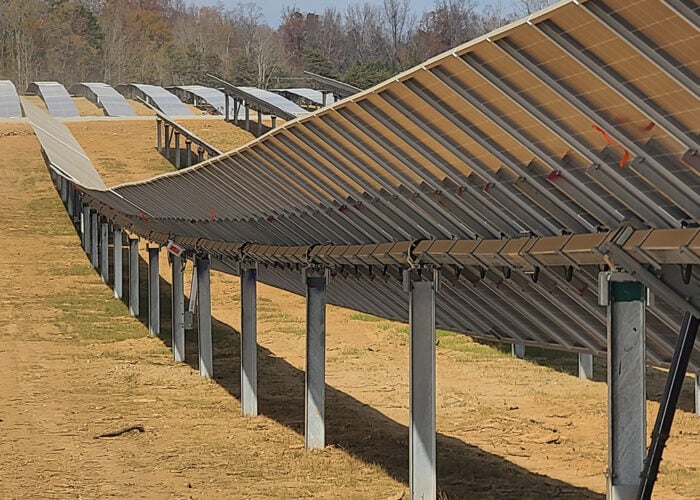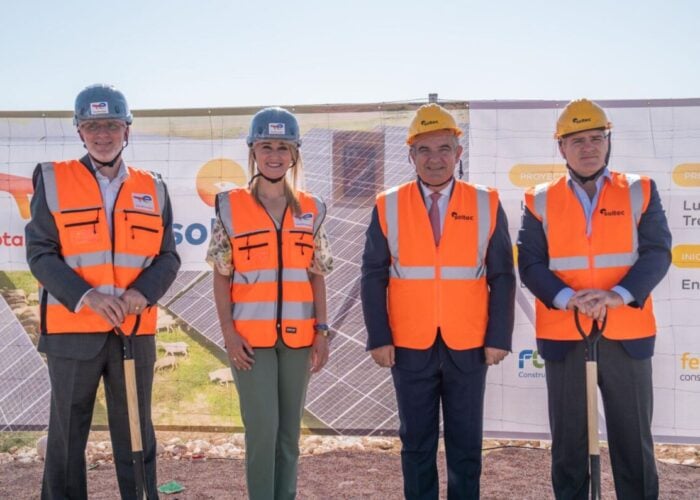String Ribbon solar cell manufacturer Evergreen Solar is planning future expansions in China, with the aim of reaching a manufacturing cost of US$1 per watt by the end of 2012. The aggressive goal is in tandem with ramping a new plant in China to 500MW in that time frame. This is being planned with another PV manufacturer, Jiawei Solar (Wuhan) Co., and the Wuhan Donghu New Technology Development Zone Management Committee, part of the Wuhan provincial government in Wuhan, China.
Rather than a joint venture, Jiawei will process String Ribbon wafers into Evergreen Solar-branded panels on a subcontract basis as part of a frame agreement. The structure of the agreement will see Evergreen Solar reimburse Jiawei for its cell and panel production costs, plus subcontractor commission fee. The price paid to Jiawei is to be negotiated on an annual basis.
Unlock unlimited access for 12 whole months of distinctive global analysis
Photovoltaics International is now included.
- Regular insight and analysis of the industry’s biggest developments
- In-depth interviews with the industry’s leading figures
- Unlimited digital access to the PV Tech Power journal catalogue
- Unlimited digital access to the Photovoltaics International journal catalogue
- Access to more than 1,000 technical papers
- Discounts on Solar Media’s portfolio of events, in-person and virtual
Interestingly, Terry Bailey, Evergreen Solar’s sales and marketing VP, while answering a question from a financial analyst during the company’s first-quarter conference call, conceded that legal restrictions had been in place with Q-Cells and other partners in String Ribbon licensee Sovello over a joint venture agreement.
“We are starting our own factory in China, and we are using a subcontractor in China. So, the minor prohibition that existed under our Sovello agreement does not exist here,” said Bailey.
Apparently, Q-Cells would have had first refusal to partner with Evergreen in such a joint venture, under a 30-day response mechanism.
The Wuhan government is expected to guarantee the financing required from banks and other potential lending agencies in China as well as provide yet-to-be-revealed incentives for locating the operation in the province.
“With the support of the Wuhan Management Committee, we will seek financing for about two-thirds of the total cost, reducing our portion of initial capital required to between US$15 million and US$20 million,” noted Richard M. Feldt, chairman/CEO/president of Evergreen Solar, during the conference call. “So, put another way, we’ll effectively expand our wafer cell and panel capacity by 100MW for between US$15 million and US$20 million of incremental cash.”
Jiawei Solar moved into its newly expanded 60,000 sq-metre complex in August 2008, with the plant having a module capacity of 35MW and two cell lines of 25MW capacity. Plans had been to increase capacity to 245MW under its third phase of expansion, requiring more construction.
Initial capacity for the Evergreen String Ribbon plant is expected to be approximately 100MW and reach about 500MW by 2012. However, the timing and scale of the planned expansions will be finalised in 2010. Final contractual agreements were close to being signed, though a minor delay within the Wuhan government was noted by Feldt. Evergreen Solar expects all the necessary arrangements, including finance, to be sorted in the next 90 days.
However, sealing the deal may be a minor glitch, since financing the new plant while maintaining liquidity for its other operations over the coming quarters could become more difficult.
By any measure, Evergreen Solar has had a challenging first quarter. Aside from the legal proceedings ongoing with the collapse of Lehmann Brothers bank, Evergreen declared a non-cash charge of US$43.9 million against a deposit given to a polysilicon start-up in France, Silicium de Provence, which went into voluntary bankruptcy in early April. Other charges generated a cash burn-rate of nearly US$100 million in the quarter.
With the required short-term up-front investment needed for the China project, Evergreen Solar is planning to raise an additional US$100 million for operations and near-term liquidity flexibility in the next few months.
It was quite clear from the conference call that its new Devens production site would continue to ramp to full capacity and become the key facility to meet U.S, market demand, where applicable. That turned out to mean that price sensitivity was not an issue, particularly domestic rooftop-type installations.
However, for larger-scale industrial/commercial and utility scale projects in the future, Evergreen Solar expects to be able to leverage the lower base production costs from China to meet and competitively compete for that business, especially against thin-film technologies.
It seems that Evergreen Solar is directing its future success and growth from Wuhan, since that location will become its lowest cost manufacturing base, and in a very short time.







